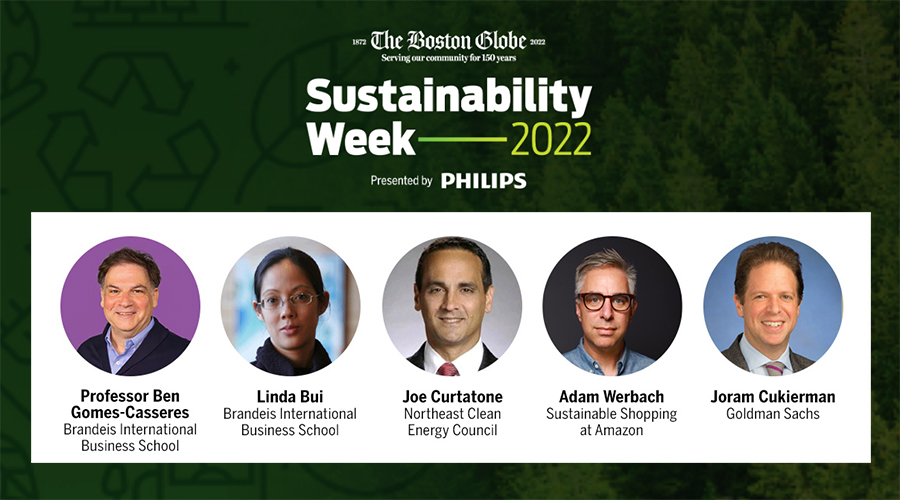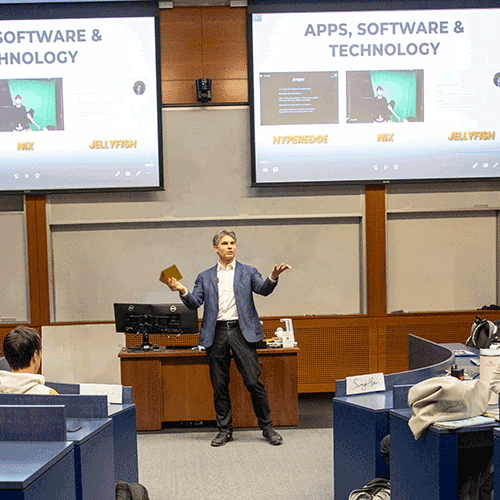People around the world are now demanding that business owners, investors and governments address climate change.
That activism must continue on a global scale if we are to decarbonize the economy in a sustainable fashion and avoid the worst impacts of a rapidly warming world, according to a panel of experts speaking April 22 at
Boston Globe Sustainability Week.
“We are heading in the right direction, but we’re not there yet,” said Adam Werbach, the global lead for sustainable shopping at Amazon. “We still need to move a lot faster, so the disruption and the activism needs to continue and accelerate. We need business schools like Brandeis pumping out young people to come into this field and to lead us.”
The virtual event was sponsored by Brandeis International Business School’s
Business of Climate Change initiative and moderated by
Prof. Ben Gomes-Casseres, the Peter A. Petri Professor of Business and Society. Werbach,
Senior Associate Dean Linda Bui, Joram Cukierman ’98, MA’99, head of renewables and environmental projects at Goldman Sachs, and Joe Curtatone, president of the Northeast Clean Energy Council, served as panelists.
Gomes-Casseres focused the discussion on a February report by the U.N.’s Intergovernmental Panel on Climate Change (IPCC). In the report, the IPCC notes that previous barriers related to cost, technological capacity and public sentiment have fallen.
“But our institutional frameworks are not necessarily up to speed,” said Gomes-Casseres. “So we must transform our institutions to address this challenge, otherwise we won’t get from here to there.”
Cukierman said that young consumers have been pushing businesses, especially technology companies, into using or developing green technology. That, in turn, has boosted demand for investment.
“Most corporations, especially if they’re publicly traded, have a fiduciary responsibility to generate returns, not to invest in businesses that have nothing directly to do with what they do,” said Cukierman. “So the challenge is how do you move the development of new technologies forward? It’s some other kind of incentive — whether it's a government incentive or consumers or activism — that helps.”
Bui, an environmental economist, noted that the exclusion of environmental costs in the price of carbon-emitting products remains the most significant economic barrier to private markets leading the way on climate innovation.
“The social cost is actually higher than the private cost,” said Bui. “So the market leads to too much of that good being consumed.”
Curtatone, the former mayor of Somerville, Massachusetts, said climate activism must be broad-based, rather than focusing on individual sectors.
“How do we align allies and stakeholders to get where we need to go?” said Curtatone. “Advocacy and activism will lead the way and that’s what I’ve learned from experience.”


